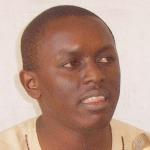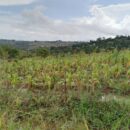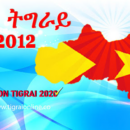Tanzania: Edward Lowassa and the politics of rumour and endorsement – By Chambi Chachage

 What “stands between Edward Lowassa and the presidency”, a top journalist claimed, “is his illness.” When I queried what ails the immediate former Prime Minister of Tanzania who is “˜campaigning’ to be our next president in the October general elections, the media guru came up with these kind of “˜conjectures’: “˜Some people say this and others say that.’
What “stands between Edward Lowassa and the presidency”, a top journalist claimed, “is his illness.” When I queried what ails the immediate former Prime Minister of Tanzania who is “˜campaigning’ to be our next president in the October general elections, the media guru came up with these kind of “˜conjectures’: “˜Some people say this and others say that.’
After I posed a similar question to a newspaper vendor a day after Lowassa announced his aim to contest, he answered; “Edo is fit!” Interestingly, the newspapers were splashed with photographs that seemed to quash the ongoing rumours about the state of health of one of the country’s leading presidential hopefuls. My favourite is the one that shows him raising his left hand, which, alongside the left eye and leg, has been the subject of intense speculation.
Prior to his cleverly orchestrated rally in a packed stadium in Arusha, Lowassa met with news editors in Dodoma and thus attempted to quash the rumours: “I want to assure you and my fellow Tanzanians that I am fit and kicking, totally fit and I am ready for anything!” Stressing that health is a gift from God’s grace and that there are people who do not wish others well, he came up with a far-fetched call for his party to form a team of local and foreign doctors who will examine all its presidential hopefuls. In regard to this, he volunteered to be the first to be medically examined.
The health question is not the only main issue that Lowassa has been at pains to address in regard to whether he is fit to govern. Another key issue is what Kitila Mkumbo has dubbed Lowassa’s “˜integrity deficit.’ By this he means that his image is associated with – if not tarnished by – corruption scandals and accumulation of wealth while in public office.
Unsurprisingly, the “˜Lowassa Question’ continues to predominate public debates as political heavyweights from the ruling party, CCM, have started to officially announce their aspirations. The question demand answers and, against all (popular) odds, “˜Team Lowassa’ is busy attempting to provide them to the satisfaction of a suspicious electorate.
One of the main strategies, then, has been to court, posthumously, the endorsement of the late Mwalimu Julius Nyerere, the first president of the country and founding chairman of CCM, who is said to have called for the dismissing of Lowassa in the 1995 presidential primaries. Diehard Nyerereists have thus been attempting, both in public and private, to argue against what they consider to be a “˜revisionist history’ that misuses and dishonours Nyerere. Lowassa has even denounced as “a lie” the assertion that Nyerere rejected him.
Kingunge Ngombale Mwiru’s endorsement of Lowassa has thus come as a shock. As one of the few remaining ideologues of the Nyerere era, he was generally expected to honor his late comrade. But, alas, in Arusha he went as far as trying, subtly, to connect Lowassa to Nyerere by arguing that he is a product of the grooming that occurred during their times.
Shrewdly, the seasoned CCM cadre also claimed that he was representing the elders in the platform at the Sheikh Amri Abeid Kaluta Stadium and those “˜out there’, something which could insinuate that former presidents – Ali Hassan Mwinyi and Benjamin Mkapa whom he mentioned by name – were also endorsing Lowassa.
Combining his legendary oratory skills and political acumen, he also tried to connect him to two key figures in CCM’s nomination process. Aikande Kwayu aptly captures the calculated move: “Kingunge also highlighted the “link” among key party leaders with Mr. Lowassa – saying, he is the same generation of party cadets with Mr. Kinana (the party Secretary General) and Mr. Kikwete (the party chairman and the current/outgoing President of the country) who were trained on party ideas since TANU [pre-CCM] era.”
No wonder Kinana sounded as if he was also endorsing Lowassa way back in March when he was quoted as saying the Monduli constituency (Lowassa’s own) has a strong and hardworking leader. And little wonder that in May Lowassa was thus quoted as eliciting the endorsement of the incumbent President: “We agreed that whoever wins the race should support the other. In 2005, I supported Kikwete for presidency and was the chairman of the campaign team. Given this, it is now my turn to contest for presidency.” What a recipe for rumours.
Rumours, however, are not incidental. As Paul Bjerk reminds us in his analysis of Dar es Salaam as “˜A City of Rumours’, they “thrive amidst uncertainty, where the desperate search for information takes on the urgency of a survival tactic.” And that is exactly what Tanzania is facing today. It is four months before the elections and we are still searching.
Yes, we are searching for information about the Richmond scandal that led to Lowassa’s resignation as the Prime Minister in 2008. Why now? Because we did not get all the answers then and he is now using it as a “˜trump card’. After claiming, in Dodoma, that even Barack Obama and Hillary Clinton affirmed that the then Richmond’s generators [that Symbion bought from Dowans] as “state of the art”, rumours had it that he will spill the beans in Arusha.
Vodacom’s alleged scandal that was posted in an anonymous blog has generated 69,558 online hits/searches and fueled rumours not least because the name of Lowassa’s son is mentioned. Even though Lowassa was not named in the recent Tegeta Escrow Account scandal, conspiracy theorists are still attempting to find a connection, if any, to those who got millions, such as Prof. Anna Tibaijuka who was glaringly visible in the Arusha rally.
Money also endorses. However, it comes with a cost. In this regard Edward, as some editors who gathered in his home at Dodoma fondly call him, finds himself having to explain his (apparent) opulence. “I wish I was that rich” was part of his response to a question one of the journalists posed.
Friends of Lowassa, however, have continued to dish out money in religious and other fundraising events that are tantamount to endorsing (if not campaigning for) him. “I have no money but I have friends” and “I enjoy fundraising” for helping developmental causes, he proudly defends his actions. One wonders why he is the “˜magnet’ that attracts such money. More significantly, what if there is “˜pay back time’ if he wins the elections?
By commending leading businessmen as instrumental in poverty eradication and being closely associated with the wealthy, Lowassa gives us a glimpse of what would define his leadership. “I crave for prosperity”, he honestly admitted and remarked: “I hate poverty!”
However, the same presidential hopeful, who claims that we “can transform our nation from being the begging bowl to become the bread basket of Africa”, is seemingly being endorsed by philanthropists through fundraising. If simply attending his Arusha rally was endorsement, then one couldn’t help but notice a number of representatives of finance capital such as the board director of African Barrick Gold, Ambassador Juma Mwapachu.
Lowassa’s team has indeed managed to brand him as hardworking. On that account he get endorsements even in unlikely places. But rumour has it that all this is not enough. Of “all the people”, a friend of mine laments about our seemingly limited choices, “why Lowassa?” Such rhetorical questions will continue to linger among those who doubt him.
Is Lowassa healthy to lead? I don’t know. All I know is that we need healthy leadership.
Chambi Chachage is a researcher in African Studies at Harvard University.







It is only yesterday I was asking a reporter from one of the dailies with large circulation, why in his file, did not include one, two, three and four on Lowassa. He replied quickly, “…most of those were in there but you know how it works – they were cut out in the name of ‘avoiding animosity;’ and honestly, I did not include some of the issues you have mentioned… don’t want to create more confusion.” Confusion? Or what? Media practitioners are doing very little in bringing out the insides of presidential hopefuls.
African leaders are selfish and feel less concerned about the people. Like most African leaders, even is Lowasa knows is sick and unfit to rule, he must go and die there. It happened here in Nigeria when our late president, Shehu Musa Yar’Adua still went through the rigours of campaigning through the length and breadth of Nigeria knowing that he was sick.
All entreaties fell on deaf ears.
God will deliver us in Africa!